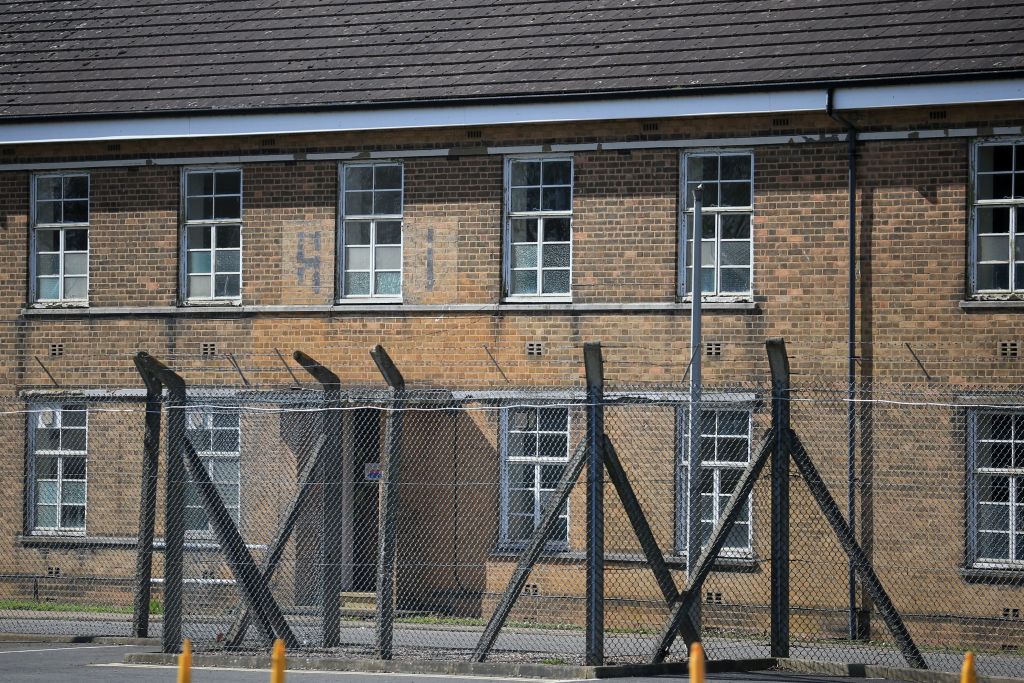All politics is local, as the old saying goes. It is, of course, an exaggeration.
But it contains easily enough truth to merit keeping in mind if you are, say, a government approaching the last year of its mandate and anxiously seeking a path to a new one.
One lesson contained within the phrase is that a policy can lumber you with a net loss of votes or seats even if it is found to be nationally popular: it may just be that where it bestows a broad benefit the policy is of low-salience, while where it impacts negatively it becomes the overwhelmingly dominant issue.
This might well prove to be true of the government’s new approach to accommodating Channel migrants. Rishi Sunak and his immigration minister Robert Jenrick are rightly determined to end the use of hotels, which are costing taxpayers more than £6 million a day and serving as a pull factor for new waves of illegal arrivals.
So they have proposed more basic and larger accommodation centres – including a former prison in Bexhill-on-Sea, a giant accommodation barge to be anchored at Portland harbour in Dorset and former military bases at Scampton in Lincolnshire and Wethersfield in Essex – as replacements.
No doubt if one were to ask in a national opinion poll whether Spartan accommodation of the sort listed above should be used instead of four star hotels to house illegal migrants awaiting asylum decisions, strong support would be recorded for the idea. Possibly such a poll has already been run in Whitehall.
But the cold fury to be found in the localities earmarked for the new, larger-scale holding centres highlights a danger for ministers. For starters, all four locations are in Tory-held constituencies heavily populated by older and mainly socially conservative voters.
There have already been well-attended demonstrations against the proposal at Scampton, Bexhill and Wethersfield. In Portland and the adjoining seaside town of Weymouth, which I know well, the local Tory MP Richard Drax is acutely aware that a hornet’s nest is being disturbed. He has pledged to investigate the viability of mounting a legal challenge to the plan.
But if young men from the Portland harbour barge do end up hanging around on nearby beaches this summer and if there are any reports of misbehaviour towards local women or holidaymakers then those will spread like wildfire throughout the community. And in that case Drax might as well not even submit his nomination papers for the 2024 election, so tainted will be the Tory reputation.
Will voters in the places that see hotels switch back to normal use be sufficiently grateful for the Jenrick plan to counterbalance this loss of support? One doubts it. Far more likely they will simply remember the farce of having their flagship hotels taken out of circulation in the first place and remain in a grumpy mood with the Tories.
Another perverse outcome from a Conservative point of view seems to me quite likely as well. Taking the Portland and Weymouth case, it is undoubtedly true that most local voters would generally favour Sunak’s hardline approach to illegal immigration over Labour’s emphasis on establishing ‘new safe routes’ (translation: let ‘em all in).
But from a South Dorset perspective, at least Labour’s open-door policy would lead to this endless stream of young men heading straight to the big cities where their diaspora communities are based rather than to traditional seaside towns. Many locals already regard London and other large conurbations as places they would not wish to set foot in anyway.
Mr Jenrick is said to be hopeful that by the time these new facilities come on stream – possibly as soon as late spring – the government will have acquired new powers which will enable it to turn them effectively into secure, pre-deportation detention centres. If that is the case and those held in them are not able to circulate in local communities then the government will probably get away with the move. The new centres will still not be popular locally, but the capacity for them to bring mayhem to peaceful places will at least have been removed.
But the Illegal Immigration Bill will need to be on the statute book before ministers gain powers to detain asylum-seekers for up to 28 days prior to deportation, rather than just four days. Currently the facilities at Scampton, Wethersfield, Bexhill and Portland are not being envisaged as involving lock-and-key detention. Those held there will be at liberty to move around the local area during the day. Given how dull life inside the centres is going to be, most will certainly avail themselves of that opportunity.
So the government’s new accommodation policy may look great on paper and may even poll well, but I predict it will prove to be far more trouble than it is worth. By contrast, getting underway largescale deportations back to countries of origin or third countries such as Rwanda would be popular in almost every constituency the Tories can hope to win in next year and would also deter new arrivals.
So stop the boats, Rishi. But just don’t wreck communities first.







Comments